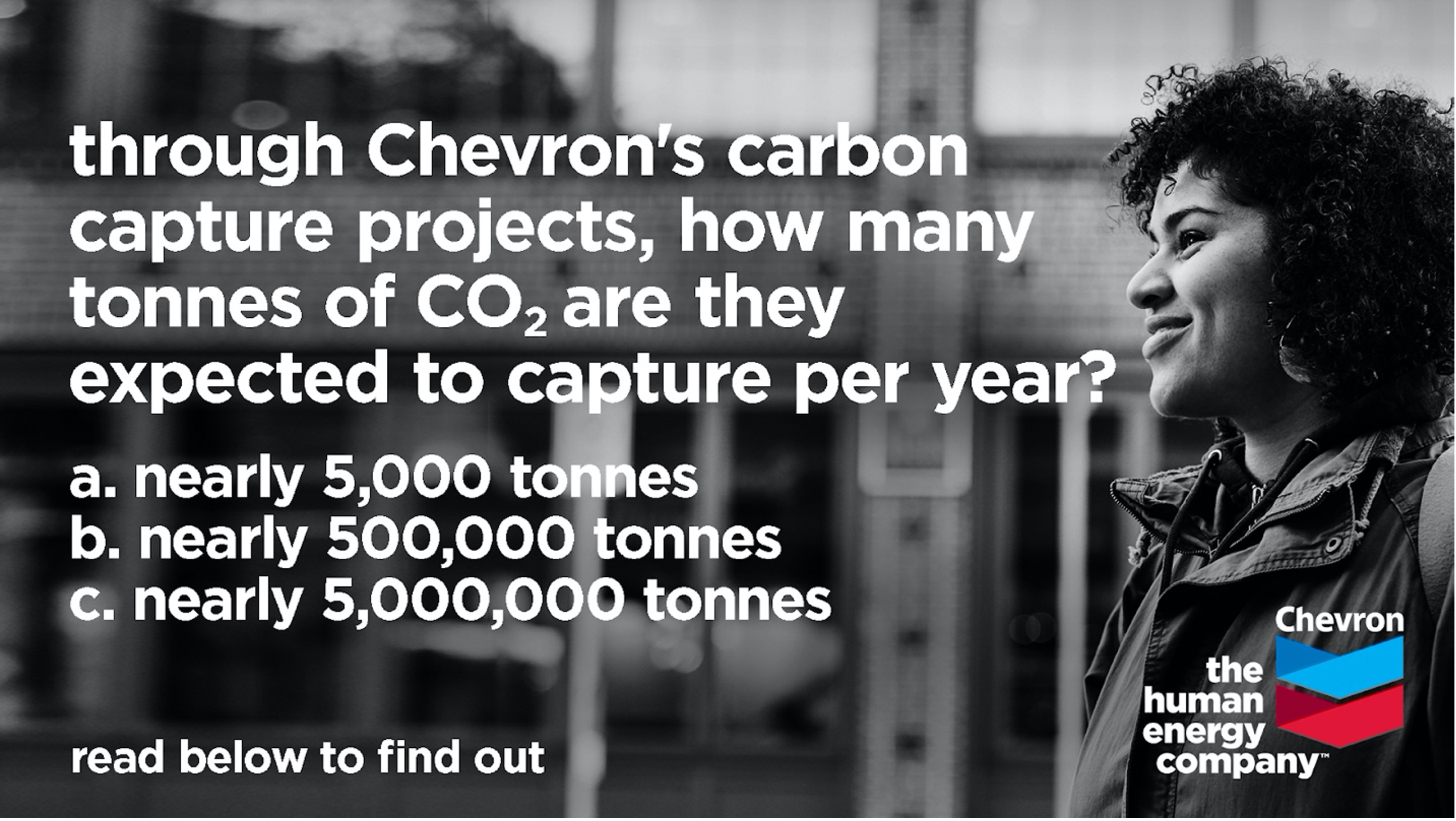| | | | | | | Presented By Chevron | | | | Generate | | By Ben Geman and Andrew Freedman ·May 13, 2021 | | Happy Thursday. Today's Smart Brevity count is 1,228 words, 4.6 minutes. ⏰ Happening today: Join Axios editors at 12:30pm ET for a virtual event on the future of clean energy investment and jobs. - Guests include Energy Secretary Jennifer M. Granholm, Michigan Gov. Gretchen Whitmer and Sen. Ron Wyden.
- Register here.
🎶 Today is Stevie Wonder's birthday and one of his many hits is today's intro tune... | | | | | | 1 big thing: Takeaways from Biden's first energy crisis |  | | | Shoshana Gordon/Axios | | | | Restoration of the Colonial Pipeline, the huge East Coast gasoline artery, is the beginning of the end of a crisis that prompted a White House logistical and political scramble. Catch up fast: Late Wednesday afternoon Colonial began restart of the 5,500-mile line that shut down nearly a week ago after a ransomware attack. But it will take days before deliveries return to normal on the largest U.S. refined fuels pipeline that transports over 100 million gallons daily. The big picture: Here are a few takeaways from the attack that snarled the East Coast fuel system, in part due to a rush on gas stations. 1. The White House quickly sensed security and political peril. - Axios' Alayna Treene reports that top officials — including counselor Steve Ricchetti and National Security Council chief of staff Yohannes Abraham — visited Camp David last weekend to brief President Biden.
- Politically, Alayna and Axios' Jonathan Swan report the White House is worried about political fallout amid images of lines outside gas stations before Memorial Day.
- The White House has been looking to show that it's on top of the situation, with Energy Secretary Jennifer Granholm and other Cabinet officials joining public briefings.
2. It's a stark reminder of the cyber risks to energy. - As we recently wrote about here, it was a stunning real-world example of how many types of infrastructure remain vulnerable to hackers.
- The Atlantic Council's Cynthia Quarterman, a top Transportation Department official in the Obama era, said it "exposes the soft underbelly of the nation's critical energy infrastructure."
- Quarterman, in comments on the council's site, notes that if a company like Colonial can be breached, smaller companies are even more vulnerable to attack.
3. New policy is already flowing from the pipeline shutdown. - On Capitol Hill, lawmakers are calling for new measures. Top House Energy and Commerce Committee lawmakers floated bipartisan bills yesterday. The pending infrastructure talks could also emerge as a vehicle.
- Separately, the White House yesterday issued a wide-ranging executive order to bolster cyber defenses. It was in the works long before the Colonial hack, but officials cited the pipeline in touting the need for it.
- CNBC has more.
4. The scale of the pipeline disruption was immense. - You've probably read by now that Colonial supplies up to 45% of the East Coast's fuel. But this International Energy Agency primer gives a sense of scale.
- It notes that the 17-state region the pipeline helps to serve, on its own, "is the largest net importer of refined products in the world, ahead of all of Africa and the Southern Asia Pacific (Australia, Indonesia, Singapore and New Zealand combined)."
|     | | | | | | Bonus: The latest on the Colonial Pipeline |  Data: AAA; Chart: Will Chase/Axios OK, here's where things stand with the Colonial Pipeline... - The shutdown and run on fuel has pushed the nationwide average gasoline price to its highest level since the fall of 2014. Per AAA, the average today is $3.03 per gallon for regular.
- The resumption of service begun late yesterday won't immediately end the problems (fuel moves slowly). Data crowdsourced from the GasBuddy app shows significant numbers of gas stations in eastern states remain without fuel.
- The latest Biden administration effort came last night when officials announced a "targeted" waiver of the Jones Act to enable fuel movement among U.S. ports by a non-U.S. flagged vessel. The company that received the waiver was not named.
What they're saying: "Colonial Pipeline reports this morning that the restart of the pipeline went well overnight. This should mean things will return to normal by the end of the weekend," Granholm tweeted this morning. |     | | | | | | 2. Elon Musk's bitcoin emissions head-scratcher | | Wedbush Securities analyst Dan Ives is all of us: He's puzzled by Elon Musk's announcement that Tesla's no longer accepting bitcoin as payment due to its carbon emissions, reversing a recent decision. The intrigue: "[T]he nature of Bitcoin mining has not changed in the last three months, which speaks to why backtracking on the crypto transaction three months later is a very surprising and confusing move to both Tesla and crypto investors," Ives said in a note. Catch up fast: Via Axios' Ivana Saric, Musk's tweet Wednesday night cited the environmental concerns associated with bitcoin — the cryptocurrency has a massive carbon footprint — as his reasoning. - "We are concerned about rapidly increasing use of fossil; fuels for bitcoin mining and transactions, especially coal, which has the worst emissions of any fuel."
- "[W]e intend to use it as soon as mining transitions to more sustainable energy," he said, adding Tesla's considering other cryptocurrencies that consume less energy.
Flashback: Musk in March approved the use of bitcoin for Tesla purchases in the U.S. Critics warned it could tarnish Tesla's environmentally friendly image. What's new: This morning Musk, in a new tweet, said bitcoin's "energy usage trend over past few months is insane" and cited University of Cambridge data. |     | | | | | | A message from Chevron | | Chevron believes in actions, not just words | | |  | | | | We believe the future of energy is lower carbon. That's why we're tying our executives' compensation to lowering the carbon emissions intensity of our operations. In fact, through our carbon capture projects, we're expected to capture nearly 5 million tonnes of CO2 per year. Learn more. | | | | | | 3. Beltway notes: Kerry, EPA, climate finance | | Giphy Finance: "The U.S. Federal Reserve has asked lenders to start providing information on the measures they are taking to mitigate climate change-related risks to their balance sheets." (Reuters) China: "The Biden administration is considering sanctions over China's alleged use of forced labor in production of solar panels and other components in renewable energy, climate envoy John Kerry told lawmakers Wednesday." (Associated Press) Agencies: "The Environmental Protection Agency released a delayed report on Wednesday warning of disturbing changes across the United States caused at least partially by global warming." (Axios) |     | | | | | | 4. 🎧 On the record with a new Biden climate official | | The latest Axios Re:Cap podcast is a conversation with Jake Levine, the newly named — and first-ever — chief climate officer at the U.S. International Development Finance Corp. - They chatted about the DFC's financial tools to help private sector-backed climate initiatives in developing countries, including its powers to make equity investments.
What they're saying: "Without the private sector, we as a global community are never going to get there — we need to be accelerating that the private sector is doing, and that's where the financial innovation comes into play," Levine tells Axios' Dan Primack. - "There's been some conventional wisdom that you can't have economic development without fossil fuels," he said.
- "Part of what we are excited to show the world is that in the developing world, in lower-income countries, there are very similar opportunities to build clean energy economies in the same way we talk about in the United States."
Listen to the whole thing, which also features Axios' Andrew Freedman, and go deeper on Levine's new role. |     | | | | | | 5. Modeling a big push on clean transport |  Reproduced from Rhodium Group; Chart: Axios Visuals Wringing carbon emissions out of transportation isn't easy, but new analysis sees a cost-effective path to major reductions over the next decade. Why it matters: Combined emissions from cars, trucks and other transport segments overtook electric power as the nation's biggest CO2 source several years ago. How it works: The Rhodium Group modeled proposed policies to speed the uptake of electric vehicles and boost efficiency, including... - Lifting the per-manufacturer cap on $7,500 consumer tax credits for buying EVs.
- Major grants for public charging installations.
- 10% investment tax credits for electric medium- and heavy-duty vehicle buys and waiver of federal excise taxes for big trucks.
- Grants for school districts to go electric with their buses.
- On the regulatory front, aggressive CO2 emissions standards.
The big picture: Extending the current incentives and charging build-out can push electric passenger vehicles from 2% of 2020 sales to 52% in 2031, the report concludes. - And check out the chart above, which adds tough standards and incentives for trucks and buses and so forth.
- It all adds up to significant emissions cuts, but it's still very far from total decarbonization because vehicle fleets take a long time to turn over.
What we're watching: The analysis arrives as the White House and Congress are negotiating over infrastructure plans. |     | | | | | | 6. Quote of the day | | "A lot of these companies are going public too early...They have the risk profile for venture capital and private investment. They really don't make sense as public companies yet." Who said it: University of Michigan business professor Erik Gordon, speaking to the New York Times about electric vehicle startups. Some startups that recently went public via SPAC deals are now struggling. |     | | | | | | A message from Chevron | | Chevron believes in actions, not just words | | |  | | | | We believe the future of energy is lower carbon. That's why we're tying our executives' compensation to lowering the carbon emissions intensity of our operations. In fact, through our carbon capture projects, we're expected to capture nearly 5 million tonnes of CO2 per year. Learn more. | | | | | | Axios thanks our partners for supporting our newsletters.
Sponsorship has no influence on editorial content. Axios, 3100 Clarendon Blvd, Suite 1300, Arlington VA 22201 | | | You received this email because you signed up for newsletters from Axios.
Change your preferences or unsubscribe here. | | | Was this email forwarded to you?
Sign up now to get Axios in your inbox. | | | | Follow Axios on social media:    | | | | | |







No comments:
Post a Comment